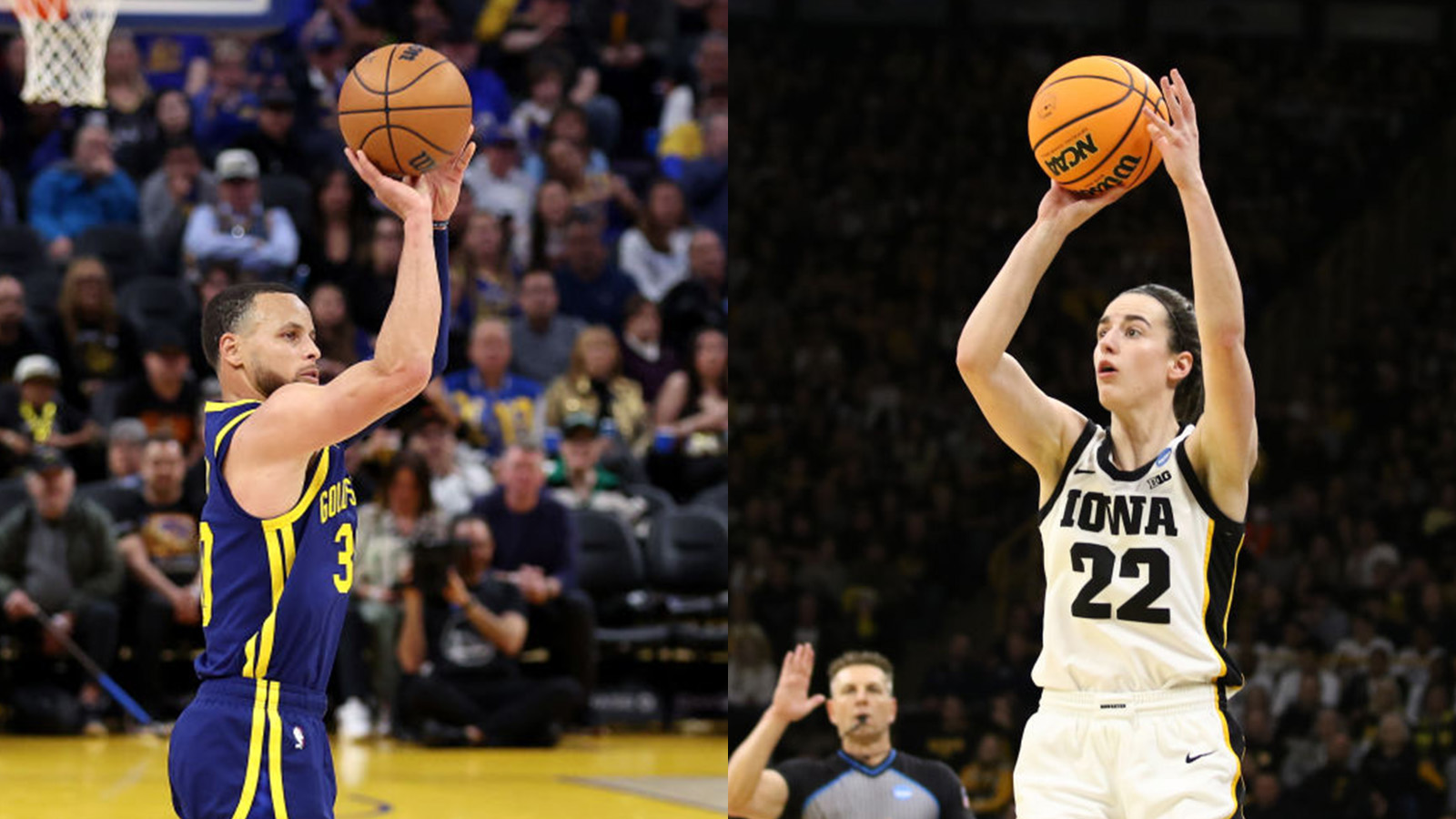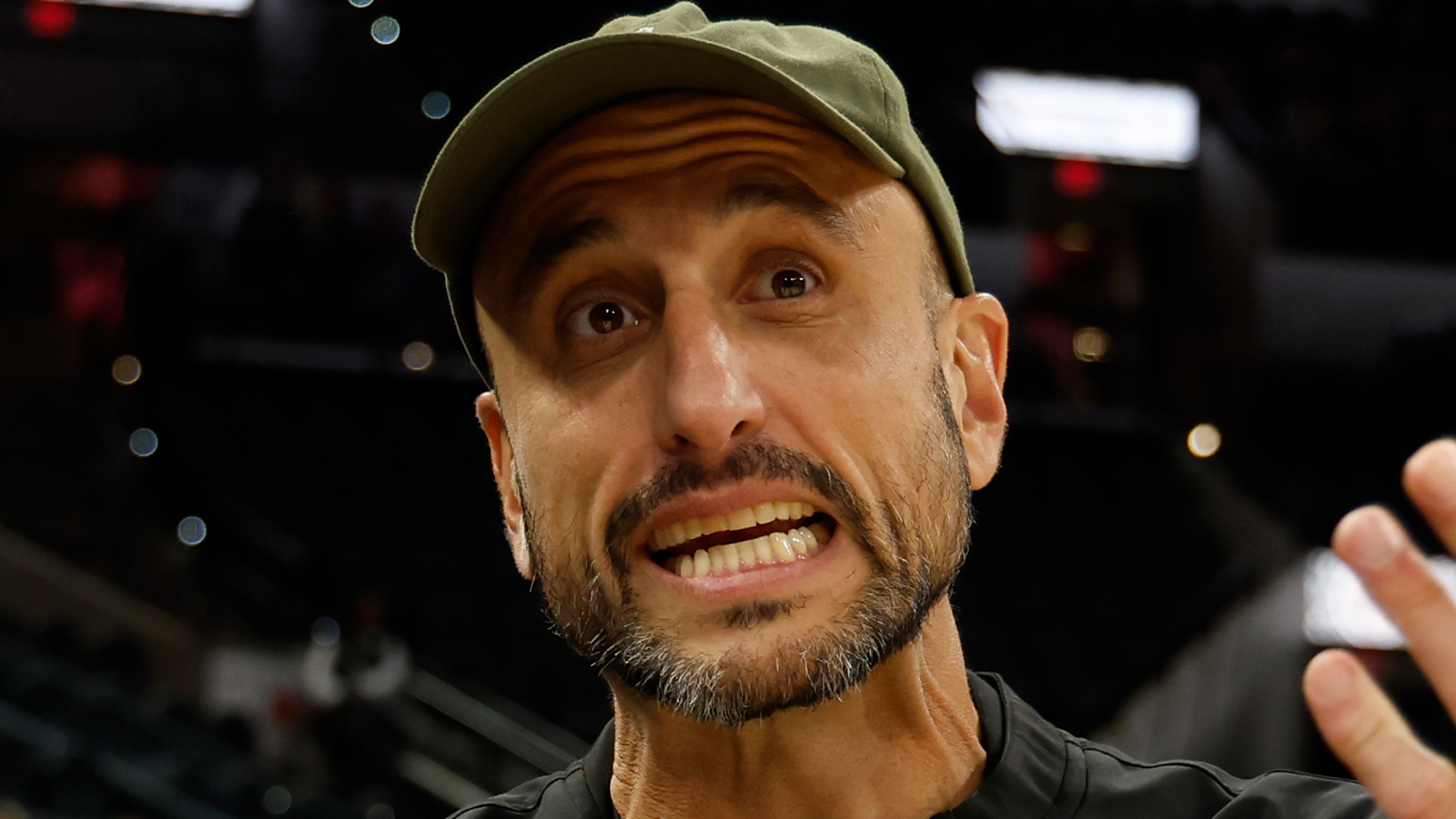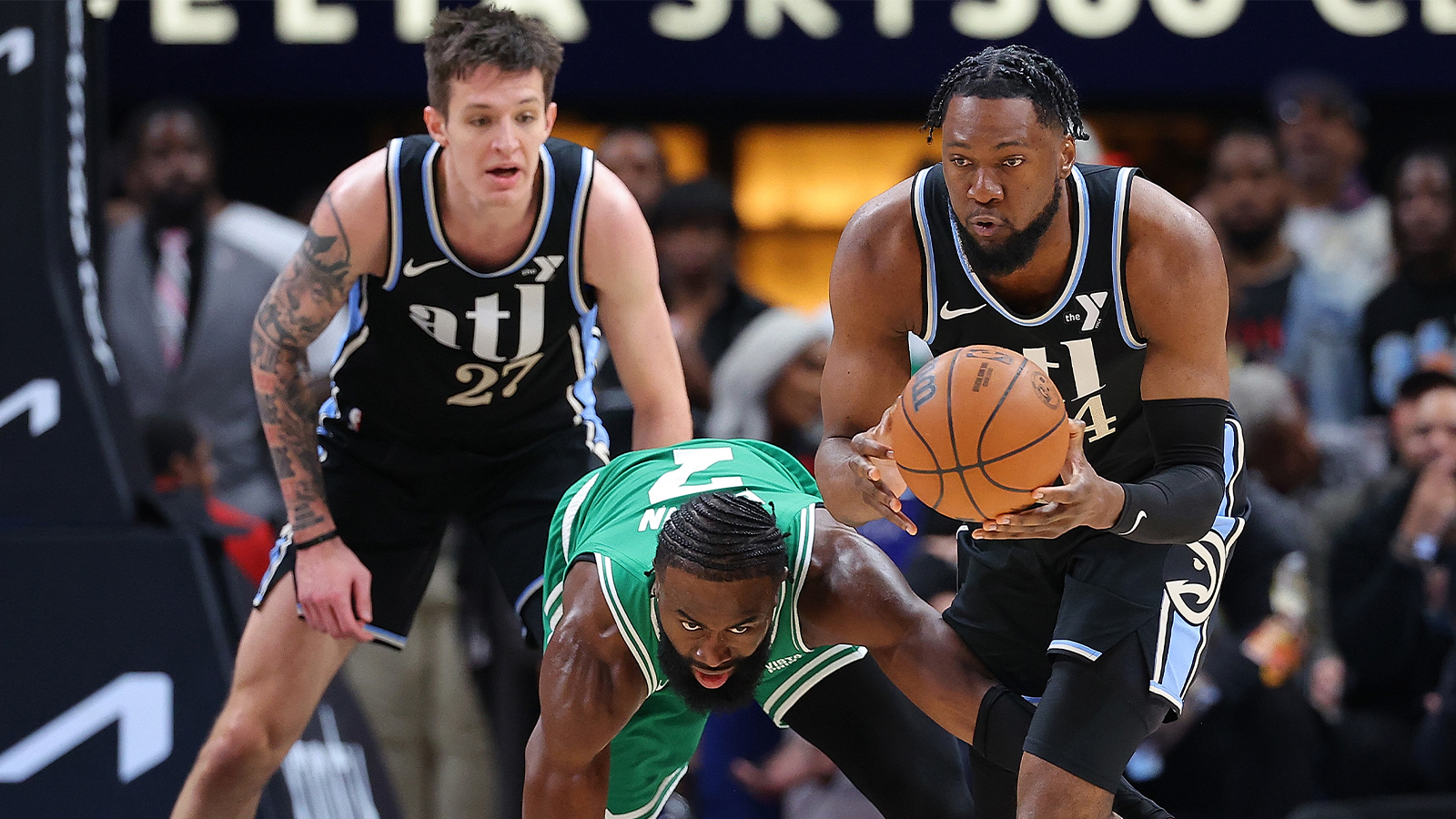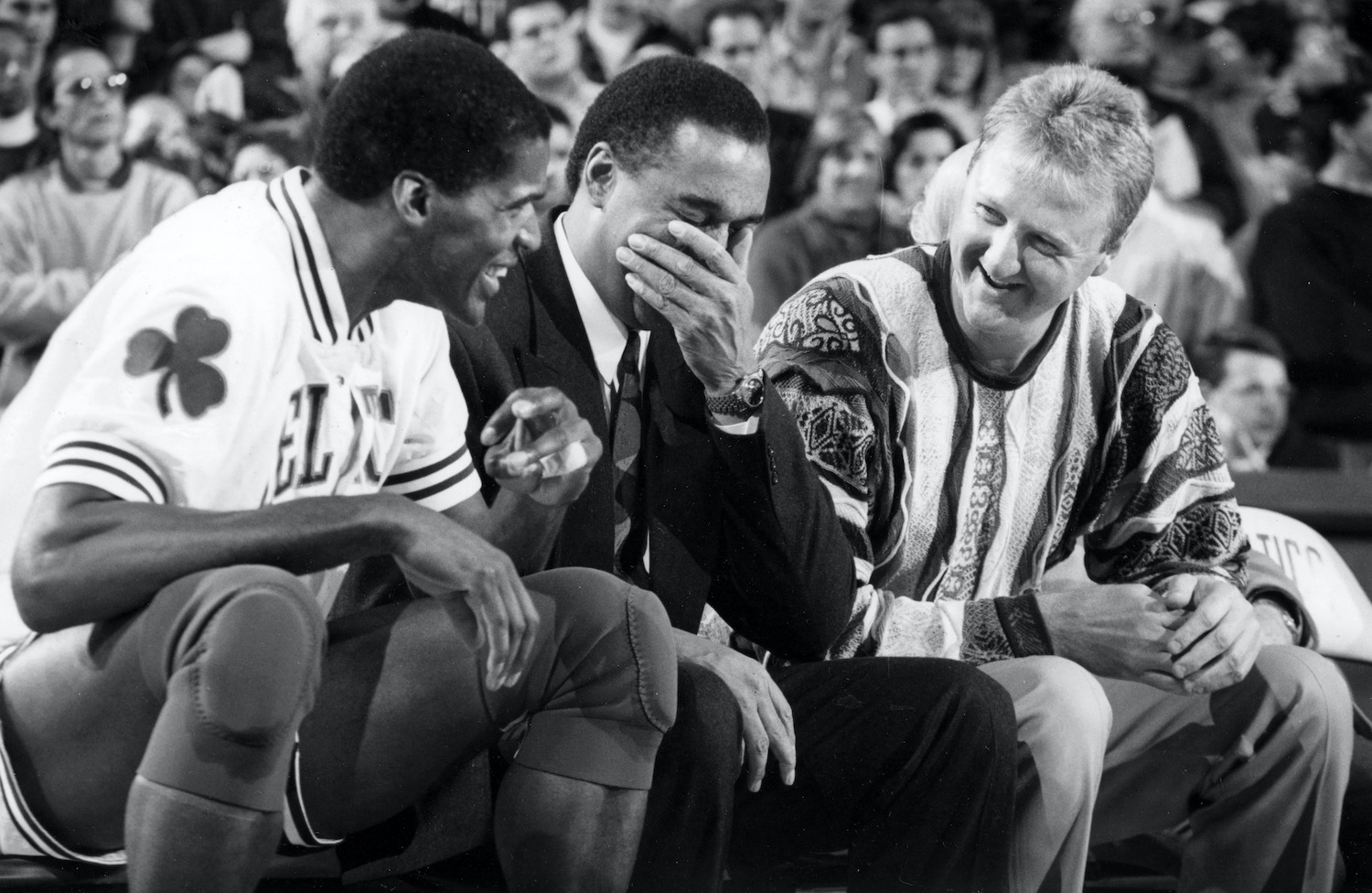
Larry Bird Impressed Robert Parish by Playing Through a Brutal Back Injury Without Any Assistance: ‘No Shots, No Pills, Nothing’
When you hear the name Larry Bird, certain things probably spring to the forefront of your mind. Maybe you remember his offensive skills and silky shooting touch. Others will prefer his trash-talking exploits and overall willingness to back his own abilities in any situation. In the context of those headline-grabbing feats, though, Larry Legend’s toughness can sometimes be overlooked.
Robert Parish, however, saw what Bird dealt with firsthand and never forgot it. In fact, when The Chief appeared on a 2017 podcast, he had nothing but praise for his old teammate’s willingness to battle through the pain.
Larry Bird played the final years of his Celtics career with a brutal back injury
In the world of sports, injuries can be an unfortunate equalizer. Even the most talented athlete can’t thrive if their body betrays them. During the tail end of his time with the Boston Celtics, that’s exactly what happened to Larry Bird.
Despite his status as a top NBA talent, Bird was a simple man who never forgot his roots. That helps explain why, in the summer of 1985, he returned home to help build a driveway for his mother. While shoveling crushed rock, the forward hurt his back, changing basketball history in the process.
While the forward kept hitting the hardwood and dominated during the 1985-86 campaign, that injury eventually took its toll. As documented in a 1991 Los Angeles Times story, Bird had to lie on his stomach rather than sitting on the bench and wore a back brace during team flights.
A Baltimore Sun write-up from the same summer provides a medical perspective on Larry Legend’s struggles. “I don’t see how he played with what he had,” Dr. Alexander Wright explained after performing back surgery on Bird. He also noted that the forward could have a lingering issue with a ruptured disc in his spine.
The doctor’s words proved to be prophetic. Bird only appeared in 45 games during the 1991-92 campaign, then retired.
Robert Parish spoke highly of Larry Legend’s willingness to battle through the pain
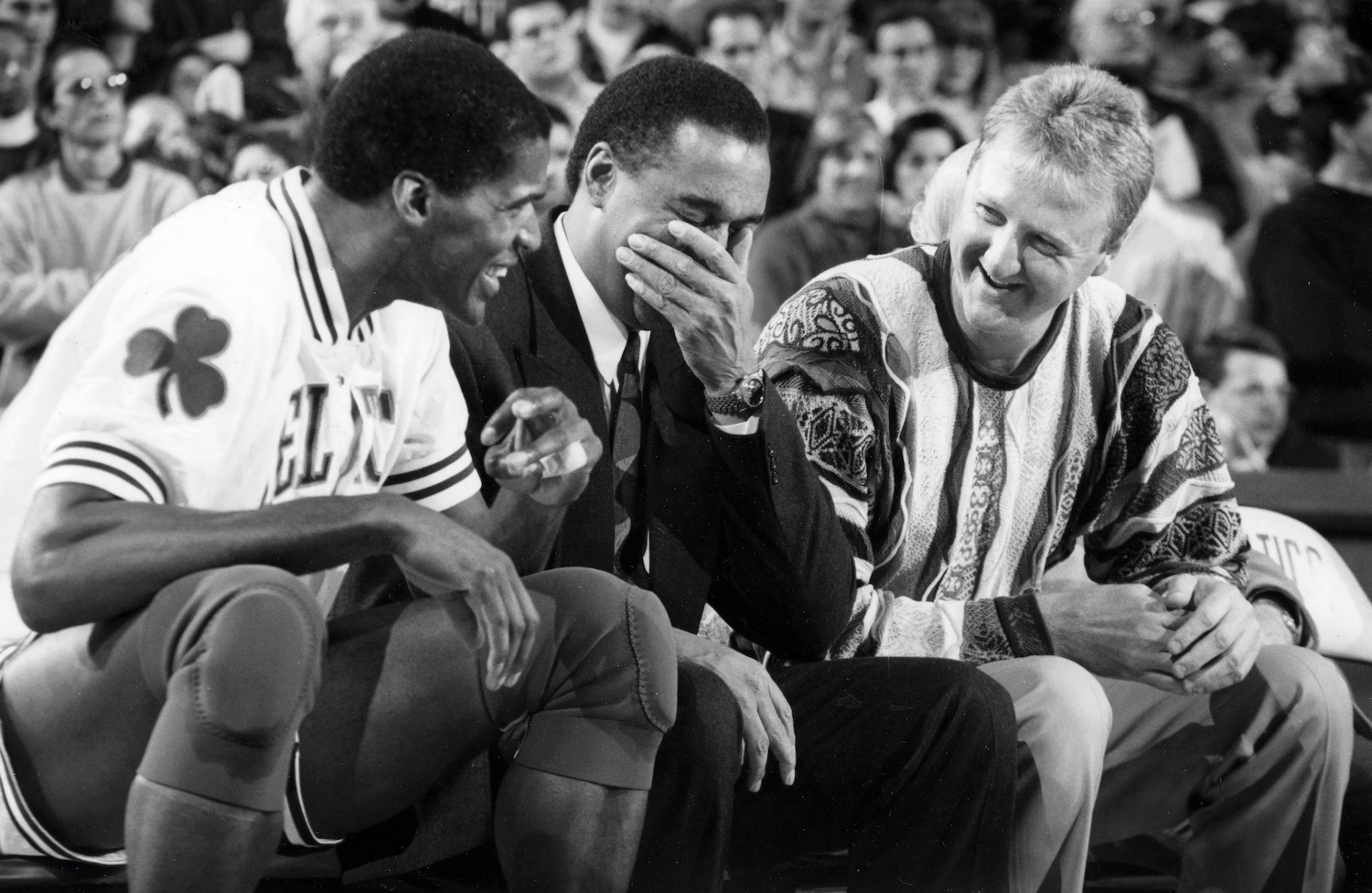
Although that back problem eventually curtailed Bird’s career, he handled the situation admirably. The forward battled through the pain as much as possible, never using his ailment as an excuse for any potential shortcomings. Those in the Celtics’ locker room noticed that efforts. Just ask Robert Parish.
“What was impressive for me…is that Larry did not take any painkillers,” The Chief explained on the In The Post with Elvin Hayes podcast. “No shots, no pills, nothing. It was just sheer will. He just willed his body to go out there and perform at a high level, and, for me, that’s what I admired about him cause most guys, if they even think about going on the court to play, they would have had some type of pain blocker to get them through the game.”
As someone who dealt with back pain himself, Parish had some extra insight into Bird’s fortitude.
“For me, I always admired that about Larry, you know, his toughness, his mental toughness,” Parish continued. “And I’ve got back issues myself, and I don’t think I would have been able to perform the way he performed with the back issues that he had. For me, I give him a lot of credit for that.”
That’s certainly high praise coming from someone like The Chief.
Larry Bird also played his entire career with a bent finger
While Bird’s back issue was clearly a major problem at the tail end of his career, that wasn’t his only physical ailment. Although you might not know it from his shooting stats, the forward also sustained a painful finger injury just before he entered the NBA.
“Bird laughs a little bit and holds up his right index finger,” John Papanek wrote in a 1981 Sports Illustrated story. “‘This,’ he says. The finger is shaped much like a boomerang, permanently bent toward his thumb at a 45-degree angle. Two operations have failed to straighten it; he can bend it only halfway to his palm. ‘I didn’t have this in college,’ he says.”
The piece explained that Bird had hurt his finger while playing softball the summer before his rookie year, and, while it didn’t outright ruin his game, it did serve as an eternal hypothetical. “How great a baseball player would Mickey Mantle have been if he hadn’t torn up his knee early in his career? One wonders what kind of shooter Bird would be now if he had a straight finger,” Papanek mused.
At this point in sports history, there’s no way to know how great Bird would have been if he never bent that finger or made the fateful decision to help build a driveway. The fact that he still found the success he did, though, does serve to underscore just how talented he was. There is a reason, after all, why they call him Larry Legend.
Stats courtesy of Basketball-Reference
